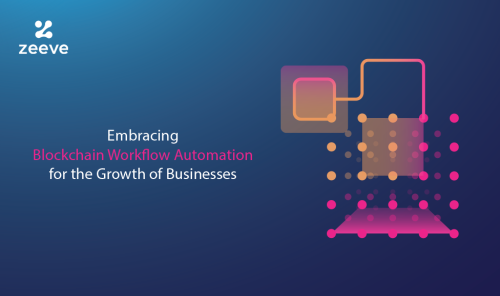
Embracing Blockchain Workflow Automation for the Growth of Businesses
While automation is something that industries have been incorporating since the early 1900s, in the past few years, blockchain has changed the narrative positively with the addition of “decentralisation.” Consequently, the repetitive tasks and back-office procedures as well as the desired goals of the organisation can be achieved with greater levels of efficiency and less hassle.
Blockchain and automation complement each other as blockchain technology offers great potential to every industry. It provides a strong network of databases. There is cryptography that is being used, and there is trustless identity management. By 2030, the technology will contribute $1.76 trillion to the world’s economy. The key finding indicates that the success of blockchain technology and business will depend on a collaborative policy.
The future of workflow automation lies in data-syncing across various applications along with integrated API solutions. This significant shift can come through the adoption of blockchain. In this blog, we will know more about why to embrace blockchain in workflow, the industries working along with blockchain, and the advantages of automating work through blockchain technology.
Why Should Your Enterprise Embrace Blockchain Workflow Automation?
Traditional businesses are facing issues related to autonomy. There are payment barriers, and the currencies differ for global business. The blockchain workflow makes it almost impossible for transactions to be falsified; thus, audits go smoothly.
With the use of blockchain technology, there can be better marketing campaigns and a real-time track of the information. The automation of work through blockchain technology is worthy of getting exceptional ROI. Smart contracts are there to replace third parties.
We know that blockchain helps to lessen the time of transactions. The process is done quickly as the overseeing of data is done by the blockchain technology itself. When the respective parties sign, the contracts and the conditions are met. The smart contracts recognize it and allow access. It also saves from copyright issues in the future.
We all know that financial management in any business requires a lot of money. With blockchain, the capital raising can be done by the Initial Token Offering (ITO). The tokens equate to revenue or equity in a company. The investors can trade into the offering and receive the company’s blockchain-based tokens.
The workflow automation is categorised into two parts, which are the BPM and RPA.
Business process management (BPM)
The BPM is a holistic approach to business success, and as per Economist Intelligence Unit, 90% of executives believe that organisational agility is critical for management. Therefore, to achieve agility in BPM, companies can opt for blockchain-as-a-service. In the era of industry 4.0, companies are proactive in adopting new methods to improve in the areas of process improvement.
The major bottlenecks of the BPM include outdated workflows, manual data handling, and repetitive work. The application of blockchain in BPM provides peer-to-peer solutions, and there isn’t any need to restructure any existing systems.
During business process management, the company can use a classical workflow automation process to save private business processes and information. Further, the public-related info can be saved, or we can say automated, by using the smart contract.
RPA and Blockchain
Robotic Process Automation (RPA) technology is leveraged a lot nowadays by all the countries. Therefore, the combination of RPA and blockchain takes the process to the next level. There is a perfect communication channel between the system and the end user. Considering the merge of RPA and blockchain, compliance management, data processing, trading, and supply chain management improves multi-fold. Talking exclusively about the RPA, particular challenges exist, such as decentralisation. However, there are organisations such as Hyperledger which are working towards a unified frame which every organisation can adapt to.
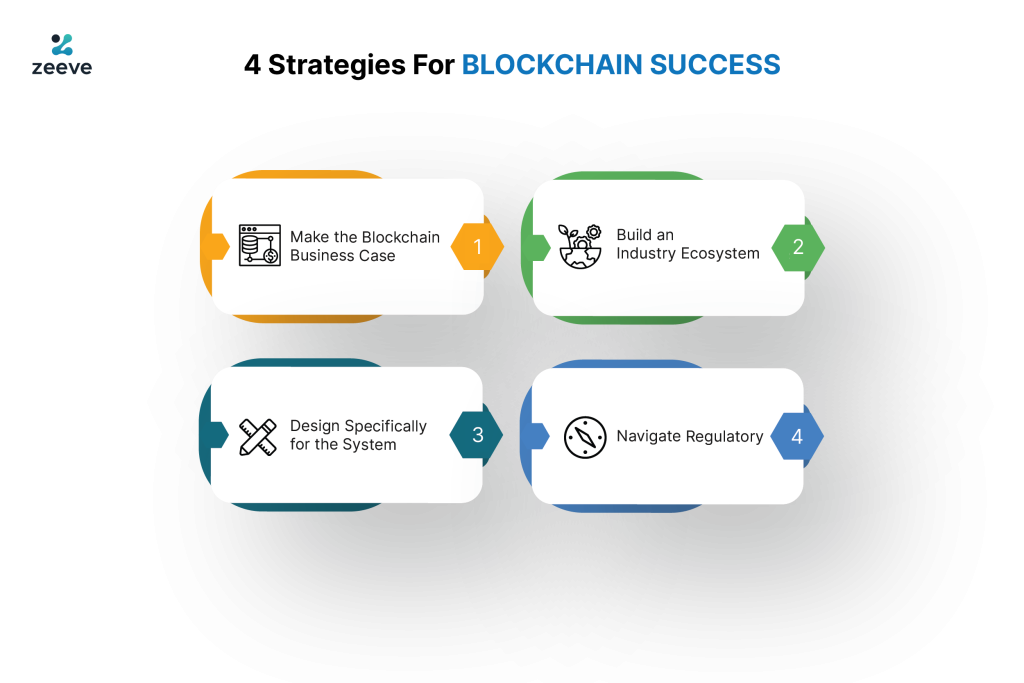
Industries Leveraging Blockchain Workflow Automation
While automation drives trade across multiple organisations, the blockchain imparts it with trust and decentralisation. Not one, not two — more than 65 industries can use blockchain’s power in workflow automation. Here are a few of the noteworthy industries adopting blockchain workflow automation.
Bank
You know that blockchain can manage the data better. But exactly how? Well, with the application of blockchain in banking and financial services, the verification of users’ identity, payment processing, know your customer (KYC), and all the processes get automated, plus there is trusted data processing. There is a reduction in counterparty risk and settlement times.
Manufacturing
The manufacturing industry runs on controlled inventories and quality control. Blockchain workflow automation improves the redundancies present in the system. With automating the workflows, it reduces the cycle time and brings swiftness to the contract management, purchase requests and product development phases.
Defence
In defence systems, the work requires collaboration, and the supply chain is complex and needs the utmost security. Automation with the help of blockchain also adds resiliency to defence communication channels. The messaging across the ecosystem becomes secure, and the technology strengthens the logistics support.
Healthcare
Healthcare requires better systems for managing data. In 2022, more than 692 healthcare data breaches were reported, which is quite alarming. With blockchain, the medical data is safe. We can share medical data across the network of doctors and healthcare providers. The licensing data is also secure with the usage of blockchain.
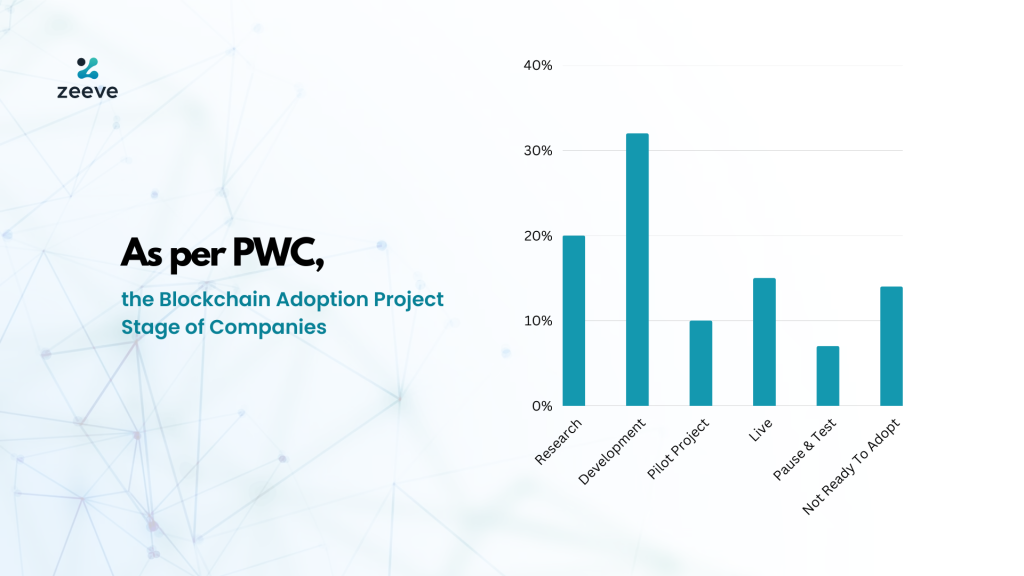
The Advantages of Automating Work Through Blockchain Networks
Listed below are a few key merits of automating workflow with the usage of blockchain technology.
Improved Efficiency
The technology maps out the data in real-time and therefore helps in improving the efficiency. Efficiency comes with fewer errors and disputes. There is less time spent manually filling the data. With proper traceability data in hand, the weakness in a network can be found easily.
Reduction in Costs
The automating of work through automation also helps to reduce the cost of the business processes. The usage of blockchain creates a process that reduces the cost and automates the approval process.
Scalability
The scalability in blockchain workflow depends on execution, storage and consensus. Other than scalability, automation can also be done by involving technologies such as IoT, and with scalability comes collaboration. Therefore, the documentation improves. The merge of IoT and blockchain gives a new term called “Blockchain of Things”, which will be a $3021 million market by 2024.
Security
On the network, the data remains immutable. There is only a single source of truth. Further, there is a hash function that improves the security of the business. The security on the business network can be improved more. The records on the network are tamper-proof, and the regulators can verify the audit trail and can verify further for security and compliance. Thus, the privacy on the network is intact.
BYOC & Workflow Automation
The bring your own cloud (BYOC) gives more freedom to opt for a provider which provides the foremost needs regarding services and reliability. The best thing about having a BYOC is that companies don’t need to depend on a single host. Scaling is completely up to you in terms of infrastructure and expenditure.
The best option for businesses is to collaborate with platforms that provide templates for the workflow. Here comes the Zeeve Distributed File System (ZDFS), built by experts and easily integrable. The file system offers complete control to the users over the assets. Besides BYOC, low-code blockchain workflow automation has also become a bigger trend recently.
The No-Code or Low Code Automation Platforms
In the path of adoption of blockchain, there lie problems such as decentralization and the requirement of infrastructure with distributed ownership. Furthermore, the communication is complex as many nodes communicate. Thus, a low-code or no-code automation platform helps businesses to implement blockchain in minimal time and cost-effectively.
Final Thoughts
Any organisation planning to adopt the technology cannot do it all alone. In order to understand the systems better, we need to gain a deeper understanding. Therefore, a strong RPC provider can help you with. Security and compliance are also tricky to understand, and a blockchain infrastructure platform can only explain the nuances of it. Similarly, there are some other confusions related to privacy. Moreover, an enterprise blockchain ecosystem differs from that of a public blockchain, and therefore companies should compare the process with the experts.
The near future will include more companies adopting the blockchain for automating processes. Also, the companies currently leveraging the technology are already reaping the benefits of it. Would you like to be the upcoming organisation with a blockchain-enabled workflow ecosystem? If not done under experts’ supervision, no solution is out of the box, which means partnering with a blockchain infrastructure platform is crucial.
Partner With Zeeve
We know you are analysing a lot about employing blockchain for workflow automation. However, better than doing all the work yourself, it would be great to collaborate with a blockchain management platform. We are a leading company in Web3, blockchain-managed services, and a dedicated node hosting company. We offer robust security and monitoring and are an RPC node provider.
Many of the influential organisations trust Zeeve to manage their Blockchain Infrastructure Management Platform & we would be delighted to partner with your enterprise as well. To know more about Zeeve, feel free to connect with us on Twitter. You would further get more clarity if you will schedule a call with Zeeve and join us on Telegram.



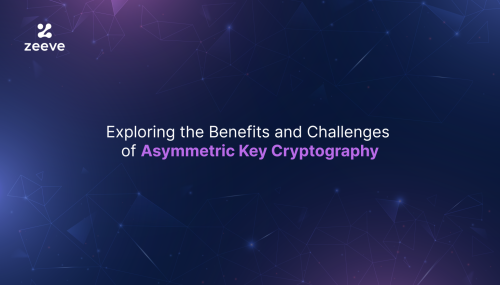
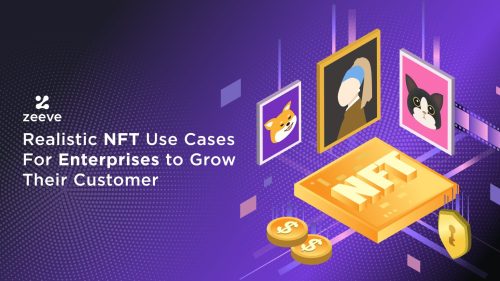

Responses